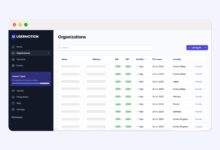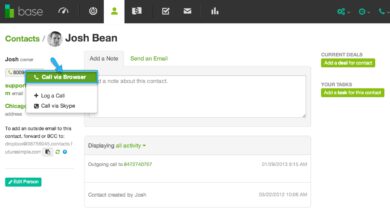Phone Based CRM: 7 Powerful Benefits You Can’t Ignore
In today’s fast-paced business world, a phone based CRM is revolutionizing how teams manage customer relationships—right from their smartphones.
What Is a Phone Based CRM?

A phone based CRM, or mobile CRM, is a customer relationship management system designed specifically for smartphones and tablets. Unlike traditional desktop CRM platforms, these tools are optimized for on-the-go access, enabling sales, support, and service teams to manage leads, track interactions, and close deals directly from their mobile devices. With cloud-based architecture and real-time syncing, phone based CRM solutions ensure that critical customer data is always within reach—whether you’re in the office, at a client site, or traveling across time zones.
Core Features of Mobile CRM Systems
Phone based CRM platforms come packed with features tailored for mobility and efficiency. These include contact management, call logging, task scheduling, GPS tracking, and push notifications. Many also integrate with email, calendar apps, and social media, creating a unified communication hub. For example, Salesforce Mobile App allows users to update opportunity stages, log calls, and even create new leads while offline—data syncs automatically once connectivity is restored via Salesforce’s robust mobile ecosystem.
- Contact and lead management on mobile
- Real-time notifications and alerts
- Offline access with automatic sync
How It Differs From Traditional CRM
Traditional CRM systems were built for desktop use, requiring users to be tied to a workstation. In contrast, a phone based CRM prioritizes mobility, touch-friendly interfaces, and instant access. While desktop CRMs often offer deeper analytics and customization, mobile versions focus on speed, simplicity, and field usability. The shift mirrors broader workplace trends—remote work, gig economy growth, and customer demand for faster response times. According to a Gartner report, the global CRM market reached $84 billion in 2022, with mobile CRM adoption growing at over 17% annually.
“The future of CRM isn’t in the office—it’s in the palm of your hand.” — TechCrunch, 2023
Top 7 Benefits of Using a Phone Based CRM
Adopting a phone based CRM isn’t just about convenience—it’s a strategic move that enhances productivity, improves customer satisfaction, and drives revenue growth. Let’s explore the seven most powerful benefits that make mobile CRM indispensable in modern business operations.
1. Real-Time Access to Customer Data
One of the biggest advantages of a phone based CRM is the ability to access customer information instantly. Sales reps can pull up a client’s purchase history, past communications, and open support tickets during a call or meeting. This real-time visibility enables personalized conversations and faster decision-making. For instance, a field sales agent visiting a retail store can check inventory levels, previous orders, and contract terms—all from their phone—before pitching a new product.
- Instant lookup of customer profiles
- View interaction history on the go
- Access documents and contracts via mobile
2. Increased Sales Team Productivity
Mobile CRM eliminates the need for manual data entry after meetings or calls. With voice-to-text logging, GPS check-ins, and one-tap call recording, reps spend less time on admin tasks and more time selling. A study by Nucleus Research found that companies using mobile CRM saw a 26.4% increase in sales productivity compared to those relying solely on desktop systems.
Features like automated follow-up reminders and task prioritization ensure that no lead falls through the cracks. For example, after a call ends, the CRM can prompt the user to send a follow-up email or schedule a demo—actions that can be completed in seconds from the same app.
3. Enhanced Customer Engagement and Response Time
Customers today expect immediate responses. A phone based CRM empowers teams to respond faster by providing instant access to communication logs and customer preferences. Support agents can resolve issues on the spot, while salespeople can send personalized offers based on real-time behavior.
For example, if a customer calls with a query, the agent’s phone CRM can display the caller’s ID, recent purchases, and past service tickets before the call is even answered. This level of preparedness leads to higher satisfaction and loyalty. According to HubSpot, businesses that respond within five minutes are 10x more likely to qualify a lead.
Key Features to Look for in a Phone Based CRM
Not all mobile CRM solutions are created equal. To maximize ROI, it’s essential to choose a platform with the right mix of functionality, usability, and integration capabilities. Here are the most critical features to evaluate.
Intuitive Mobile Interface
A cluttered or complex interface defeats the purpose of mobility. The best phone based CRM apps feature clean, responsive designs with large buttons, swipe gestures, and minimal scrolling. Navigation should be intuitive, allowing users to complete common tasks—like logging a call or updating a deal—in under 10 seconds.
- Touch-optimized design
- Customizable dashboards
- Voice command support
Offline Functionality
Field workers often operate in areas with poor connectivity. A robust phone based CRM must allow users to view, edit, and create records offline. Once the device reconnects to the internet, all changes should sync automatically without data loss.
Solutions like Zoho CRM and Freshsales offer full offline modes, including the ability to log calls, update lead status, and attach photos—all of which sync seamlessly when back online. This ensures continuity and prevents workflow disruptions.
Integration with Communication Tools
A phone based CRM should integrate natively with calling, texting, and email platforms. Features like click-to-call, SMS automation, and email tracking turn the CRM into a communication command center.
For example, integrating with Twilio or RingCentral allows users to make calls directly from the CRM, with automatic call logging and transcription. Similarly, syncing with Gmail or Outlook ensures that every email exchange is captured in the customer’s timeline. These integrations reduce app switching and improve data accuracy.
Top Phone Based CRM Platforms in 2024
The market is flooded with CRM solutions, but only a few deliver a truly mobile-first experience. Below are the top five phone based CRM platforms that stand out for performance, usability, and innovation.
Salesforce Mobile
Salesforce remains the gold standard in CRM, and its mobile app is no exception. With AI-powered insights, customizable dashboards, and offline access, Salesforce Mobile is ideal for enterprise teams. It supports Lightning components, enabling businesses to build custom mobile workflows.
The app integrates with Einstein AI to provide predictive lead scoring and next-best-action recommendations. Users can also leverage voice commands via Siri or Google Assistant to create tasks or check forecasts. Learn more at Salesforce Mobile Overview.
HubSpot Mobile
HubSpot’s mobile app offers a user-friendly interface perfect for small to mid-sized businesses. It includes contact management, deal tracking, email syncing, and meeting scheduling—all accessible from a single dashboard.
One standout feature is the ability to scan business cards using the phone’s camera and automatically create contact records. The app also supports two-way sync with Google Calendar and tasks, ensuring no appointment is missed. HubSpot’s free tier makes it an attractive entry point for startups.
Zoho CRM Mobile
Zoho CRM’s mobile app is packed with features, including voice-assisted data entry, GPS-based visit tracking, and AI-powered sales signals. It supports offline mode, push notifications, and real-time collaboration.
The app’s Zia AI assistant can predict deal closures, suggest follow-ups, and even detect sentiment in customer emails. Zoho also offers deep integration with WhatsApp, allowing teams to manage conversations directly from the CRM. Explore more at Zoho CRM Mobile.
How to Implement a Phone Based CRM Successfully
Deploying a phone based CRM isn’t just about installing an app—it requires strategic planning, training, and change management. A poorly executed rollout can lead to low adoption and wasted investment.
Assess Your Team’s Needs
Before selecting a platform, evaluate your team’s workflows, pain points, and mobility requirements. Are your reps in the field 80% of the time? Do they need offline access? Do they rely heavily on phone calls or SMS?
Conduct surveys or interviews with frontline staff to gather insights. This ensures the chosen CRM aligns with real-world usage patterns rather than theoretical benefits.
Choose the Right Vendor
Compare vendors based on mobile functionality, not just desktop capabilities. Look for apps with high ratings on the App Store and Google Play, frequent updates, and strong customer support.
- Test the mobile app before committing
- Check for native mobile features (not just responsive web)
- Verify integration with existing tools (e.g., telephony, email)
Train and Onboard Users Effectively
Even the best phone based CRM will fail if users don’t know how to use it. Provide hands-on training sessions, video tutorials, and quick-reference guides tailored to mobile use.
Start with core tasks: logging calls, updating deals, and viewing customer history. Gamify learning with challenges and rewards to boost engagement. Assign mobile champions within teams to provide peer support.
Common Challenges and How to Overcome Them
While phone based CRM offers immense value, organizations often face hurdles during adoption. Recognizing these challenges early can prevent setbacks.
Data Security and Privacy Concerns
Mobile devices are more vulnerable to loss or theft than desktops. To protect sensitive customer data, enforce strong security policies: require biometric authentication, enable remote wipe, and use encrypted connections.
Choose CRM platforms that comply with GDPR, HIPAA, or CCPA, depending on your industry. For example, Salesforce and Microsoft Dynamics 365 offer enterprise-grade security and audit trails.
User Resistance to Change
Some employees may resist switching from familiar desktop systems to mobile apps. Address this by highlighting time-saving benefits and involving users in the selection process.
Start with a pilot group, gather feedback, and refine the rollout plan. Show real-world success stories—like a rep who closed a deal from the airport using the mobile CRM—to build momentum.
Syncing and Integration Issues
Poor integration between the phone based CRM and other tools (e.g., email, calendar, ERP) can lead to data silos. Ensure the CRM offers native integrations or supports APIs for custom connections.
Regularly audit data flow to identify sync delays or duplicates. Use middleware platforms like Zapier or Make (formerly Integromat) to bridge gaps between systems.
Future Trends in Phone Based CRM Technology
The evolution of mobile CRM is accelerating, driven by AI, 5G, and wearable tech. Staying ahead of these trends ensures your business remains competitive.
AI-Powered Predictive Insights
Future phone based CRM systems will leverage AI to deliver hyper-personalized recommendations. Imagine receiving a notification: “Call Sarah now—she opened your proposal three times this morning.”
AI will analyze customer behavior, sentiment, and engagement patterns to predict the best time to contact, the most effective message, and the likelihood of conversion—all displayed on your phone screen.
Voice-Activated CRM Assistants
As voice recognition improves, CRM apps will increasingly support natural language commands. Users will be able to say, “Log a call with John, duration 12 minutes, discussed pricing,” and the system will auto-create the record.
Integration with virtual assistants like Alexa for Business or Google Assistant will make CRM interaction hands-free, especially useful for drivers or field technicians.
Integration with Wearables and IoT
Smartwatches and IoT devices will soon feed data into phone based CRM systems. For example, a fitness equipment sales rep wearing an Apple Watch could receive a vibration alert when a client enters a gym—triggering a CRM prompt to send a personalized offer.
IoT sensors in products can report usage data to the CRM, enabling proactive service and upsell opportunities. This creates a seamless loop between physical interaction and digital relationship management.
Phone Based CRM for Small Businesses: Is It Worth It?
Many small business owners wonder if investing in a phone based CRM is necessary. The answer is a resounding yes—especially for service-based, field sales, or customer-centric businesses.
Cost-Effective and Scalable
Most phone based CRM platforms offer affordable subscription models, with free tiers available (e.g., HubSpot, Zoho). There’s no need for expensive hardware or IT infrastructure—just download the app and start using it.
As your team grows, you can scale up features and user licenses without major disruptions. This flexibility makes mobile CRM ideal for startups and growing SMBs.
Leveling the Playing Field
A small business with a mobile CRM can deliver enterprise-level customer service. Quick response times, personalized follow-ups, and consistent tracking create a professional image that builds trust.
For example, a local HVAC company using a phone based CRM can dispatch technicians with full job history, send automated service reminders, and collect digital signatures—all from a smartphone. This efficiency rivals that of larger competitors.
Improved Customer Retention
Mobile CRM helps small businesses stay top-of-mind. Automated birthday messages, post-service surveys, and loyalty program tracking foster stronger relationships.
According to a study by Investopedia, increasing customer retention rates by 5% can increase profits by 25% to 95%. A phone based CRM makes it easier to nurture long-term relationships with minimal effort.
What is a phone based CRM?
A phone based CRM is a mobile-optimized customer relationship management system that allows users to manage contacts, track interactions, and manage sales pipelines directly from their smartphones or tablets.
How does a mobile CRM improve sales productivity?
It reduces administrative tasks through features like one-tap calling, automatic logging, offline access, and real-time notifications, allowing sales teams to focus more on selling and less on data entry.
Can a small business benefit from a phone based CRM?
Absolutely. Small businesses gain improved organization, faster response times, and better customer retention—all at a low cost and with minimal setup.
Is data secure in a phone based CRM?
Yes, provided the platform uses encryption, secure authentication, and complies with data protection regulations. Always choose reputable vendors with strong security track records.
Which CRM has the best mobile app?
Salesforce, HubSpot, and Zoho CRM are consistently rated as having the most powerful and user-friendly mobile apps, each excelling in different areas like AI, usability, and affordability.
Adopting a phone based CRM is no longer optional—it’s a necessity for businesses that want to stay agile, responsive, and customer-focused. From real-time data access to AI-driven insights, mobile CRM platforms empower teams to work smarter, sell faster, and build stronger relationships. Whether you’re a solo entrepreneur or part of a large enterprise, the right phone based CRM can transform how you engage with customers. The key is to choose a solution that fits your workflow, train your team effectively, and embrace the mobility revolution. The future of customer relationship management is mobile, and it’s already here.
Further Reading:







